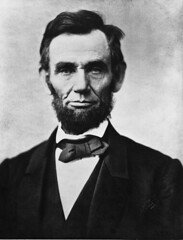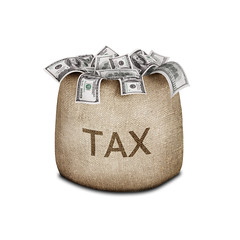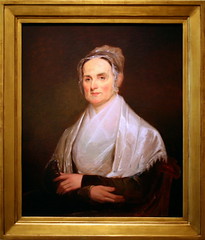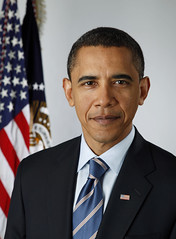| 8680693142 | The Inca, Iroquois, Maya, Aztec | What are the Pre-Columbian Native American societies? | | 0 |
| 8680693143 | The Canon, Astrolabe, Compass, and improved maps | What technology did the Portuguese use in their voyages of exploration? | | 1 |
| 8680831768 | Bartholomeu Dias | Who was the Portuguese sailor who was first to sail around Africa's southern tip at the Cape of Good Hope | | 2 |
| 8680831769 | The discovery of nearly identical species of fish in long-separated freshwater lakes throughout the world | What proved the once existence of a single original continent (Pangea) | | 3 |
| 8680831770 | The Appalachian Mountains | Which mountain range was probably created before the continental separation (about 350 million years ago) | | 4 |
| 8680831771 | People who crossed the land bridge from Eurasia to North America | Who were likely the first Americans | | 5 |
| 8680831772 | 54 Million | In 1492, when Europeans arrived in the Americas, the total of the two continents' populations was probably what? | | 6 |
| 8680831773 | Establish large, elaborate, bustling cities; make strikingly accurate astronomical observations; study mathematics; carry on commerce | What did the more advanced Native American cultures do? | | 7 |
| 8680831774 | Corn | What was the crop that became the staple of life in Mexico and South America? | | 8 |
| 8680831775 | North America | Where was Native American civilization least highly developed? | | 9 |
| 8680831776 | The production of a rich diet that led to a relatively high population | What did the development of "3 sister" farming lead to? | | 10 |
| 8680831777 | In small, scattered, and impermanent settlements | Before the arrival of Europeans, where did most natives in North America live? | | 11 |
| 8680831778 | Military alliances, sustained by political and organizational skill | How was the Iroquois Confederacy able to menace its Native Americans and European neighbors? | | 12 |
| 8680898496 | Hunting, gathering fuel, clearing fields for planting, and fishing | What tasks did men in more settled agricultural groups in North America preform? | | 13 |
| 8680898497 | No nation-state that yearned to expand supported their ventured | Why did the early voyages of the Scandinavian seafarers not result in permanent settlements in North America? | | 14 |
| 8680898498 | They brought back news of valuable Far Eastern spices, drugs, and silk | Why were Christian Crusaders indirectly responsible of the discovery of America? | | 15 |
| 8680898499 | The Arabs and Africans | What group was responsible for slave trading in Africa long before the Europeans had arrived? | | 16 |
| 8682177213 | The Portuguese Slave System | Where can the origins of the modern plantation system be found? | | 17 |
| 8682177214 | Portugal controlled the African Coast | Why did Spain look westward in order to reach the Indies? | | 18 |
| 8682177215 | Maize, Potatoes, beans, and tomatoes | What New World plants revolutionized the international economy? | | 19 |
| 8682177216 | 90% | Within a century of Columbus' landfall in the new world, how much had the native population dropped? | | 20 |
| 8682177217 | The growth of Capitalism | What did the flood of precious metals into Europe from the New World result in? | | 21 |
| 8682177218 | European governments to give Native Americans to colonists if they promised to Christianize them | What did the encomienda system allow? | | 22 |
| 8682177219 | To gain God's favor by spreading Christianity; To escape dubious (criminal) pasts; to seek adventure; to satisfy their desire for gold | Why did men become Conquistadors | | 23 |
| 8682177220 | They had a century head start of exploration over the English; they were genuine Empire builders; they were cultural innovators in the new world; their settlements were bigger and richer compared to Anglo-Saxon ones | What true about Spain and their exploration | | 24 |
| 8682177221 | It guaranteed toleration to all Christians | What did Maryland's Act of Toleration (1649) do? | | 25 |
| 8682177222 | Because it could be produced easily and quickly | Why was tobacco considered a poor man's crop? | | 26 |
| 8682177223 | It had to be planted extensively; required the clearing of a lot of land; required an elaborate refining process; was a capital-intensive process | Why was sugar considered an Rich Man's crop? | | 27 |
| 8682177224 | Sugar | What was the main export crop of the British Caribbean? | | 28 |
| 8682177225 | Barbados | Where did the statues governing slavery in North America originate? | | 29 |
| 8682177226 | Rice and Native American slaves | What were the two major exports of the Carolinas | | 30 |
| 8682177227 | Hostile | What were Carolinians attitude towards Native Americans? | | 31 |
| 8682177228 | Create a haven for people imprisoned for debt | What were Georgia's founders determined to do? | | 32 |
| 8682177229 | They were economically dependent on the export of a staple crop | How were Virgina, Maryland, the Carolinas, and Georgia similar? | | 33 |
| 8682177230 | Based their economies on the export of staple crops; practiced slavery; provided tax support towards the Church of England; had few large cities | By 1750, what did all the Southern plantation caolines do/have? | | 34 |
| 8682177231 | Anglican Church | What did King Henry VIII establish following the Protestant Reformation | | 35 |
| 8682177232 | Violent and Unjust | How would you describe the treatment of the Irish under the reign of Elizabeth I | | 36 |
| 8682177233 | Francis Drake | "Sea Dog" who plundered the treasure ships of the Spanish Main | | 37 |
| 8682177234 | Walter Raleigh | courtier whose colony at Roanoke Island was mysteriously abandoned in the 1580s | | 38 |
| 8682177235 | Humphrey Gilbert | adventurer who tried but failed to establish a colony in Newfoundland | | 39 |
| 8682177236 | The Defeat of the Spanish Armada | What caused Spanish dreams of building and empire to fade? | | 40 |
| 8682177237 | It helped to ensure England's Naval dominance in the North Atlantic | What did England's defeat of the Spanish Armada do? | | 41 |
| 8683380532 | A unified nation state, measure of religious unity, a sense of nationalism, and a popular monarch | What did England posses on the eve of its colonization venture? | | 42 |
| 8683380533 | A large population boom; enclosing of crop lands, thus forcing farmers off their land; increased unemployment; an economic depression | What happened in England as the 17th Century opened up? | | 43 |
| 8683380534 | A joint-stock company | Who provided the financial means for England's first permanent colonization in America? | | 44 |
| 8683380535 | Unemployment, thirst for adventure, desire for markets, desire for religious freedom | What were some motives for English colonization? | | 45 |
| 8683380536 | The foundation for American Liberty | The guarantee that English settlers in the New World would retain the "rights of Englishmen" became what? | | 46 |
| 8683380537 | To impress Smith with his power and show the Indians desire for peace | Why did Chief Powhatan have Captain John Smith kidnapped? | | 47 |
| 8683380538 | He imposed a harsh military regime in the colony | What did Lord De La Warr do when he took control of Jamestown in 1610 | | 48 |
| 8683380539 | Nonexistent | What was the social order in Virginia and other southern colonies like? | | 49 |
| 8683380540 | Disease | What was the biggest disrupter of Native American life? | | 50 |
| 8683380541 | 14% | By 1700, what percentage of Virginia's population was black slaves | | 51 |
| 8683380542 | To be financially profitable and create a refuge for the Catholics | What was the colony of Maryland founded? | | 52 |
| 8683639492 | Patterns if settlement; economies; political systems; values | Colonists in both the North and South established differently in what ways? | | 53 |
| 8683639493 | German; protested against the Catholic doctrines at Wittenberg in 1517; denounced the authority of priests and popes; declared that the Bible was the only source of God's word | Who was Martin Luther ? | | 54 |
| 8683639494 | Fines; floggings; banishment; death | What were the punishments for people who flouted the authority of the Puritan Liturgy in the Massachusetts Bay Area | | 55 |
| 8683639495 | Breaking away from the Church of England; condemning and taking Native American land; denying the authority of civil governments; challenging the legality if the Massachusetts Bay Charter | What were Roger William's beliefs? | | 56 |
| 8683639496 | Individualists and independent attitudes | What was the colony of Rhode Island known for? | | 57 |
| 8683639497 | It established a regime democratically controlled by the "substantial" citizens | Settlers fo the Connecticut River Colony developed a document known as the Fundamental orders which did what? | | 58 |
| 8683639498 | Intertribal unity against the English | What was the New England Native Americans' only hope for resisting the English? | | 59 |
| 8683639499 | The lasting defeat of New England's Indians | What did King Philips war result in? | | 60 |
| 8683639500 | The power of town meetings was curbed; officials tried to enforce the navigation laws; taxes were levied unfairly; smuggling was repressed | What were the results of Sir Edmond Andros' rule? | | 61 |
| 8683639501 | The Dutch | Who originally founded New York? | | 62 |
| 8683639502 | For quick profit off of fur trading | Why was the Dutch colony New Netherland (later NY) founded? | | 63 |
| 8683639503 | The autocratic spirit survived | What happened when the English gained control over New Netherland? | | 64 |
| 8683639504 | The monopolistic land policies of the aristocrats | Why was the physical growth of English New York slowed? | | 65 |
| 8683639505 | Pennsylvania | What was the best advertised colony? | | 66 |
| 8683639506 | profitable very quickly | What was the economy of Pennsylvania like | | 67 |
| 8683639507 | Slave labor in the south | What became the main regional difference? | | 68 |
| 8683639508 | Scarcity of Women | What was the population of the Chesapeake colony notable for throughout the first half of te 17th century | | 69 |
| 8683639509 | The Chesapeake colonies | Due to high death rates, families were both few and fragile where? | | 70 |
| 8683639510 | Virginia | By 1700, what was the most populated colony? | | 71 |
| 8683639511 | Captured by African coastal tribes | Many of the slaves who reached North America were what? | | 72 |
| 8683639512 | Middle Passage | The gruesome ocean voyage to america, particularly for African American slaves | | 73 |
| 8683639513 | South Carolina | Where were the worst social and physical conditions for slaves? | | 74 |
| 8683639514 | Jazz, the banjo, a variety of words, and bongos | What did African Americans contribute to American culture | | 75 |
| 8683639515 | racial discrimination | Although slavery was started for economic reasons, slavery also was influenced by what? | | 76 |
| 8683639516 | Slaves | Who was at the bottom of the Social class in the south? | | 77 |
| 8683639517 | Marry early and have several children | It was common for colonial New England adults to do what? | | 78 |
| 8683639518 | Orderly | How was expansion of New England society? | | 79 |
| 8683639519 | Democracy in political government | What did the Puritan system of congressional church government lead to? | | 80 |
| 8683639520 | Fishing, ship building, and commerce | What did the New England economy heavily depend on? | | 81 |
| 8683639521 | Energy, stubbornness, self-reliance, resourcefulness | The combination of Calvinism., soil, and climate in New England resulted in the people there possessing what qualities | | 82 |
| 8683639522 | Extremely important | How important was New England's impact on the rest of the nation | | 83 |
| 8691582570 | Every world war since 1688 | Beginning in the 17th Century, what had America been involved in? | | 84 |
| 8691582571 | Popularly elected assemblies | What did English colonies have that New France did not? | | 85 |
| 8691582572 | Beavers | What was one valuable resource in New France? | | 86 |
| 8691582573 | Fur Trapping | What was the primary economic pursuit of early settlers in New France | | 87 |
| 8691582574 | They explored and acted as geographers | What did the Jesuit priests do other then failing at gaining converts? | | 88 |
| 8691582575 | Decades of salutary neglect | What did Britain provide during the generation of peace following the 1713 treaty of Utrecht? | | 89 |
| 8691582576 | Fighting over control of The ohio river valley | What did the clash between Britain and France for control of North America stem from? | | 90 |
| 8691582577 | He was defeated at fort necessity but was allowed to retreat | What happened in George Washington's first military command in the French and Indian War? | | 91 |
| 8691582578 | To achieve colonial unity and common defense against the French threat | What was the long ranged purpose of the Albany Congress of 1754? | | 92 |
| 8691582579 | He focused his military strategy on the Quebec-Montreal area | What happened when William Pitt became prime minister during the 7 Years War? | | 93 |
| 8691582580 | A very important battle | What was the battle of Quebec 1759? | | 94 |
| 8691582581 | A new spirit of independence arose, as the French threat disappeared | What happened once the Americans and British won the 7 Years War? | | 95 |
| 8691582582 | Stabilize Indian-white relations | What did the British decide to do after defeating Chief Pontiac and his alliance? | | 96 |
| 8691582583 | To work out a fair trade settlement of the Indian problem | What was the Proclamation of 1763 designed to do? | | 97 |
| 8691582584 | It prohibited colonial settlement west of the Appalachian Mountains | What did the Proclamation of 1763 do? | | 98 |
| 8691582585 | Rapidly growing populations | What was one feature that all the rebellious colonies had? | | 99 |
| 8691582586 | The natural fertility of Americans | What can the population growth of the American Colonies by 1775 be attributed to? | | 100 |
| 8691582587 | New York, Charlestown, Philadelphia, Boston | What communities could be considered a city in Colonial America by 1775? | | 101 |
| 8691582588 | Pugnacious, lawless, and individualistic | How could you describe the Scots-Irish | | 102 |
| 8691849796 | Very little considering the amount in England | How many poor people were in the American Colonies by the mid 1700s | | 103 |
| 8691849797 | The ministry | What was the most honored profession in early colonial society | | 104 |
| 8691849798 | Cattle and Grain | By the 18th century, what did the northern colonies rely on? | | 105 |
| 8691849799 | Tobacco | By the 18th century, what did the Chesapeake colonies rely on? | | 106 |
| 8691849800 | Rice and Indigo | By the 18th century, what did the southern colonies rely on? | | 107 |
| 8691849801 | 90% | What percentage of people were farmers in the colonies? | | 108 |
| 8691849802 | Agriculture | What was the leading industry in the American colonies | | 109 |
| 8691849803 | The trading of manufactured goods for slaves | What did the triangular trade of the colonial American shipping industry involve? | | 110 |
| 8691849804 | Rum, Beaver Hats, Lumber, Iron | Although manufacturing in the colonies was of second importance, what did the Americans produce | | 111 |
| 8691849805 | Slow by any means available | What was transportation in colonial america like | | 112 |
| 8691849806 | A cradle for democracy; hotbeds for agitation for the Revolutionary movement; important in crystallizing public opinion; places providing amusement | What were Colonial American taverns? | | 113 |
| 8691849807 | Congregational and Anglican | What were the only 2 established (tax supported) churches in 1775 Colonial America? | | 114 |
| 8691849808 | undermined the prestige of the learned clergy in the colonies; split the colonial churches into several competing denominations; led to the founding of Princeton, Dartmouth, and Rutger colleges; was the first spontaneous mass movement of the American People | What did the great awakening do? | | 115 |
| 8692743063 | Parliament passed the tax, not the colonists | Why did the colonists object the Stamp Act | | 116 |
| 8692743064 | That every member of British Parliament represented all British subjects | What did virtual representation mean? | | 117 |
| 8692743065 | It kept the idea of parliament taxation alive | Why was the tax on tea retained when the Townshend acts were repealed | | 118 |
| 8692743066 | Not the only protest | Was the Boston Tea Party an only protest? | | 119 |
| 8692743067 | It granted Quebec a religious tolerance and trail by jury | What did the Quebec act do? | | 120 |
| 8692743068 | To consider ways of redressing colonial grievances | Why was the First Continental Congress called? | | 121 |
| 8692743069 | Second-rate officers; the need to keep many soldiers in Europe in case of trouble; long supply lines; brutal treatment of their soldiers | What were some weaknesses of the British Army? | | 122 |
| 8692743070 | Both the Americans and the British | Who did the African American fight for during the revolutionary war? | | 123 |
| 8692743071 | Compelling the American Colonists to shoulder some of the financial costs of the empire | What change in colonial policy by the British government helped precipitate the American Revolution | | 124 |
| 8692743072 | A willingness to subordinate private interests to the common good | What did American colonial exponents of Republicanism argue that a just society depended on? | | 125 |
| 8692743073 | Greeks and Romans | What models did republicans look to as examples of a just society | | 126 |
| 8692743074 | The arbitrary power of the monarchy | What did the radical whigs fear? | | 127 |
| 8692743075 | A country's economic wealth could be measured by the amount gold and sliver in its treasury | What did mercantilists believe | | 128 |
| 8692743076 | Supply Britain with raw materials not available there; furnish ships, seamen, and trade to bolster the strength of the Royal Navy; provide a market for British Manufactured goods; refrain from exporting woolen cloth | What were Americans expected to do under Mercantilist doctrine | | 129 |
| 8692743077 | They were loosely enforced | Before 1763, the navigation laws were what? | | 130 |
| 8692743078 | The stifled economic initiative | Why were the Navigation Laws a burden to certain colonists? | | 131 |
| 8692743079 | To raise money to support a new military force needed for colonial defense | Why did the British Parlament pass the Stamp Act | | 132 |
| 8692743080 | They convinced many colonists that the British were trying to take away their historic liberty | What did the passage of the Sugar Act and Stamp Act do? | | 133 |
| 8704905213 | Courage, sense of justice, moral force, patience | What qualities did George Washington exhibit as the commander of America's Revolutionary Army | | 134 |
| 8704905214 | Political reasons | Why was George Washington chose to lead the colonial army | | 135 |
| 8704905215 | A shortage fo gunpowder | Why did the colonial army eventually lose the Battle of Bunker Hill | | 136 |
| 8704905216 | After the battle of bunker hill | When did King George III officially declare the colonies in rebellion? | | 137 |
| 8704905217 | It professed American loyalty to the crown | Why did the Olive Branch petition do? | | 138 |
| 8704905218 | The Battle of Quebec | After what battle did the colonists abandon efforts to capture Canada | | 139 |
| 8704905219 | To explain to the rest of the world why the colonies had revolted | What was one purpose of the Declaration of Independence | | 140 |
| 8704905220 | The people | Where does the power come from in a republic? | | 141 |
| 8704905221 | It called for American Independence and the creation of a democratic republic | What did Thomas Paine's Common Sense call for? | | 142 |
| 8704905222 | The Battle of Long Island, Camden, Quebec, & the Seige of Cahrleston | What were some of the British victories | | 143 |
| 8704905223 | Offer the British one last chance at reconciliation | What did the Declaration of Independence *NOT* do? | | 144 |
| 8704905224 | A minority movement | Like many movements, the American Revolution was what? | | 145 |
| 8704905225 | New England | Where were supporters of the English Crown least likely to be from? | | 146 |
| 8704905226 | Saratoga & Washington | What battles revealed Washington at his military best? | | 147 |
| 8704905227 | It brought the colonists into the much needed alliance with France | Why was the battle of Saratoga a key victory for the Americans? | | 148 |
| 8705748783 | They wanted to get revenge against the British | Why did France come to America's aid in the revolution? | | 149 |
| 8705748784 | Joseph Brant | The Indian Chief who fought for the British in New York and Pennsylvania | | 150 |
| 8705748785 | Cheap land was easily available and America had few landed Aristocrats | Why did American avoid the frightful excesses of the French Revolution | | 151 |
| 8705748786 | Little more than a conference of ambassadors with very limited power | What was the Second Continental Congress | | 152 |
| 8705748787 | Enforce tax-collecting programs | What could the Articles of Confederation leave congress unable to do? | | 153 |
| 8705748788 | Prohibit slavery in the old northwest | What was one farsighted provision in the Northwest Ordinance of 1787? | | 154 |
| 8705748789 | Money from land sales towards the national debt; surveys of the land; division into townships by 6 mile squares; money from every 16th section towards education | What did the Land Ordinance of 1785 provide? | | 155 |
| 8705748790 | Foreclosures on the mortgages of backcountry farmers | What provoked Shay's Rebellion | | 156 |
| 8705748791 | A stronger central government | What did Shay's rebellion create a need for in America? | | 157 |
| 8705748792 | A stronger central government was needed? | What did the relationship between the 13 states under the Articles of the Confederation create a need for? | | 158 |
| 8705748793 | Antifederalists | Those who opposed ratifying the New Constitution were known as... | | 159 |
| 8705846132 | To preserve the union, forestall anarchy, ensure the security of life and property, curb unrestrained democracy | What were the motives of the delegates at the 1787 Constitutional convention in Philadelphia | | 160 |
| 8705947450 | Apportioning congressional representation | What did the Great Compromise at the Constitutional Convention work out an acceptable scheme for? | | 161 |
| 8705947451 | Government by the consent of the governed; checks and balances; the sanctity of private property; a strong central government | The delegates to the Constitutional convention manifested their common beliefs in what? | | 162 |
| 8705947452 | The consent of the governed | The new constitution established the idea that the only legitimate government was one based on what? | | 163 |
| 8705947453 | State conventions | The delegates at the Constitutional Convention stipulated that the new constitution be ratified by who? | | 164 |
























































































































































































































